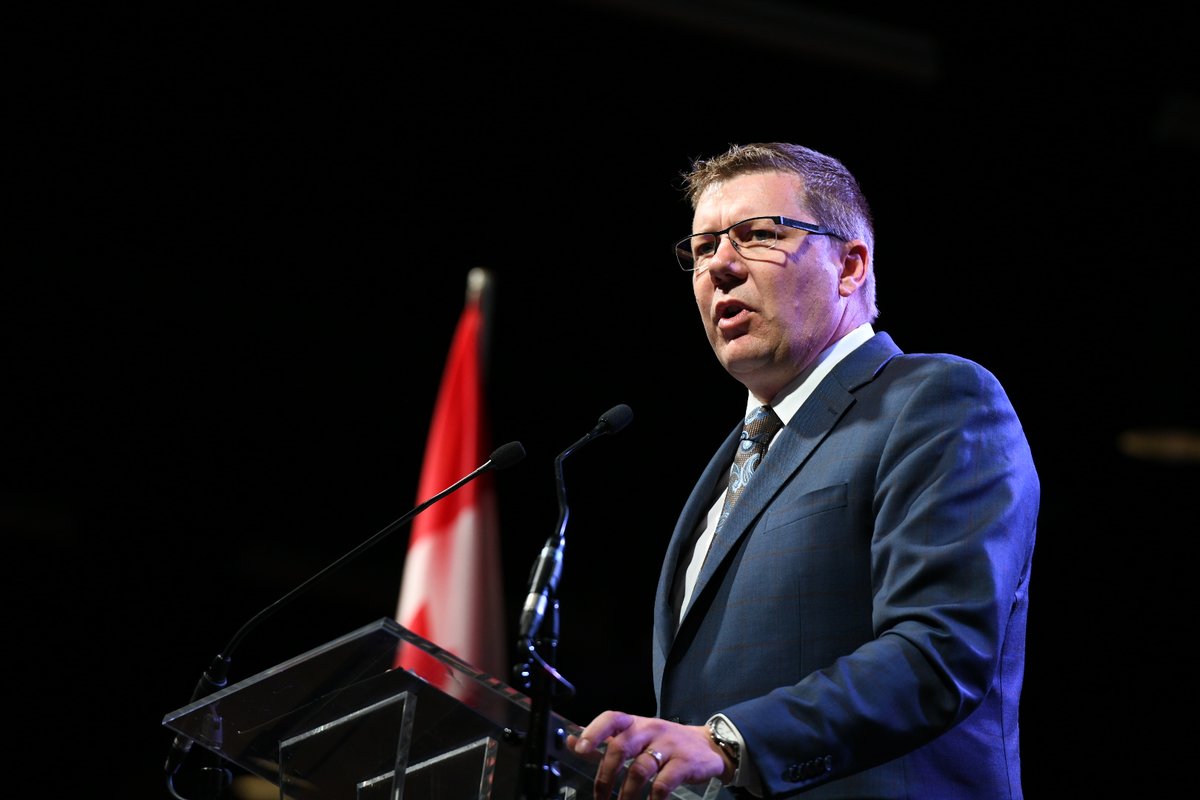Canada News
‘Beyond advocacy:’ Moe forms cabinet committee on pipeline expansions

“Our government recognizes the necessity of further developing pipeline infrastructure to help our energy products reach key global markets,” he said in a statement Tuesday. (File Photo: Scott Moe/Twitter)
REGINA — Saskatchewan Premier Scott Moe has put together a committee of cabinet ministers to assess how the government could help get more pipelines built in the province.
“Our government recognizes the necessity of further developing pipeline infrastructure to help our energy products reach key global markets,” he said in a statement Tuesday.
Jeremy Harrison, minister of trade and export development, said because of the political risk around building pipelines — whether created through litigation or regulatory uncertainty — Saskatchewan will also consider buying in to projects.
Harrison, as well as the ministers of Environment, Energy and Resources, and Finance are in the group.
“It’s not ideal that you would have governments directly involved in this fashion in energy infrastructure projects, but the reality is that unless governments are involved in energy infrastructure projects, they’re not going to get built,” he said.
“We do have an economic and policy interest in having these pipelines constructed and that requires government to have a role beyond advocacy.”
Harrison said the Trans Mountain pipeline expansion is a good example of government equity at work. He welcomed a decision Tuesday from the Federal Court of Appeal dismissing challenges to the project’s approval.
“This project needs to go forward as quickly as it can possibly go forward,” he said.
Moe said the idea for the committee came from communities, Indigenous leaders and businesses that want to expand pipeline access into the United States or create it through the Port of Churchill in northern Manitoba.
Harrison later said that the government was in favour of all the projects.
“So whether that’s to Churchill, whether that’s to tidewater in the west, whether that’s to tidewater in the east or whether that’s to tidewater in the south, we’re prepared to work with proponents on all of those sort of projects,” he said.
The Assembly of Manitoba Chiefs said First Nations need to be engaged in the initial discussions of any pipeline development to Churchill.
“First Nations in Manitoba must be involved, consulted and engaged in the process in a manner that respects their rights and interests,” Grand Chief Arlen Dumas said in a statement Tuesday.
“This includes considerations of First Nations’ interests in other infrastructure including the railway, and, if developed, their involvement that leads to positive economic benefits and prosperity.”





















